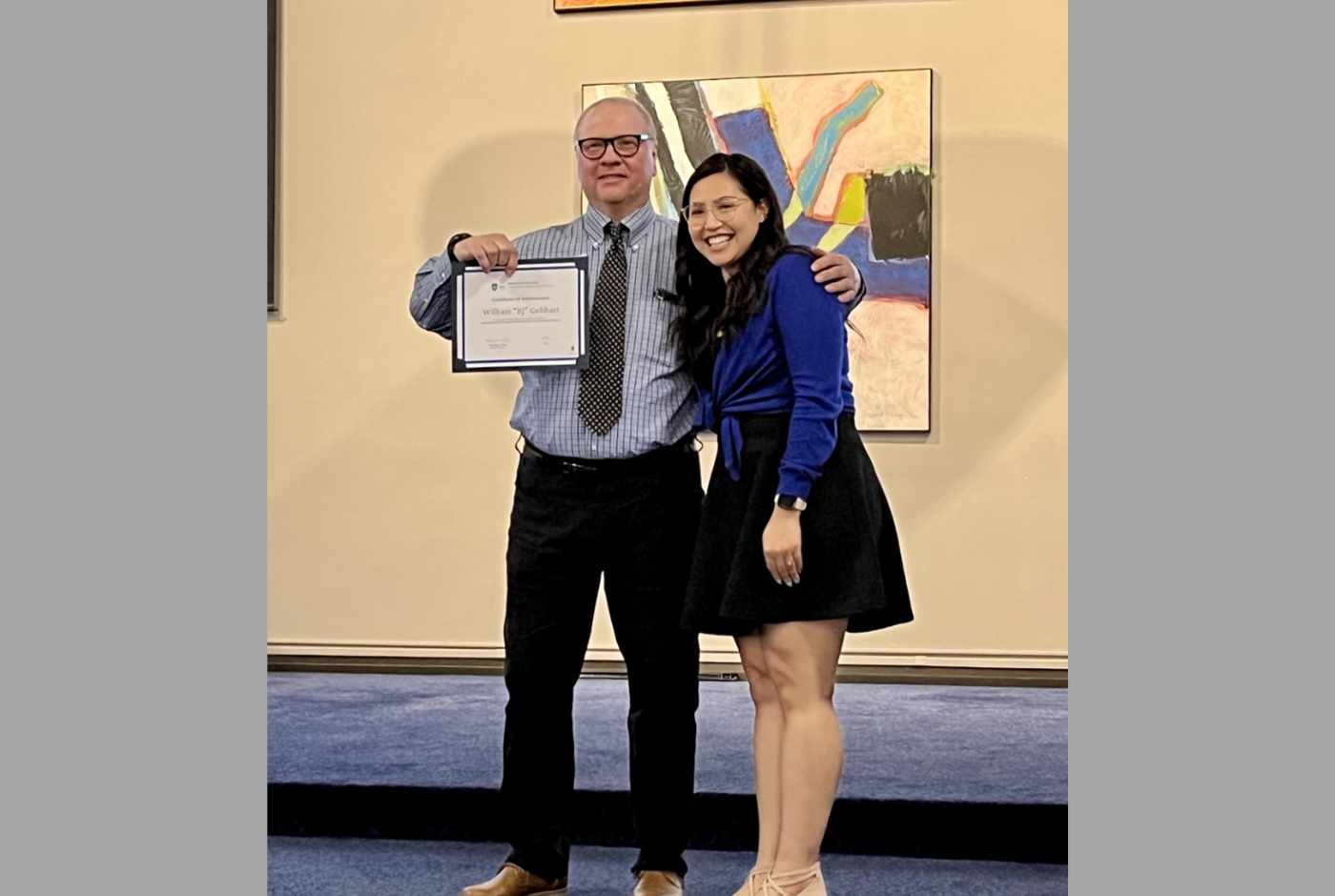
OTR's Commitment to Practicing in the Area of Criminal Justice Assists Individuals to Successfully Reenter into the Community

Christine Hayes Picker, MOT, OTR/L
Program Manager and Community Transitions Occupational Therapist, Occupational Therapy Transition and Integration Services (OTTIS), Department of Occupational Science and Occupational Therapy, Saint Louis University
Location: Missouri
Certified in 2017
Serving an Underserved Population
Christine Hayes Picker, an OTR from Missouri, works to successfully transition individuals to the community after incarceration. For the past five years, Christine has worked for Occupational Therapy Transition and Integration Services at Saint Louis University. She has provided OT services to people who are incarcerated, including helping clients overcome barriers from incarceration to promote reentry into the community. Christine addresses the whole person through career exploration, employability, goal setting and vision statements, personal development, and life skills inclusive of money and home management. She helps clients foster their self-efficacy, knowledge, beliefs, attitudes, and skills in reentry and everyday life. Connecting clients with community partners who can offer housing, behavioral health services, and substance use treatment services is a primary objective of the program. Through the reentry process, clients become more actively engaged in their own lives and the community.
Christine also works with clients who are juveniles sentenced to life without parole (JLWOP). These clients have been incarcerated for over 25 years and were originally serving life sentences. They now have the option to petition for parole and are preparing to reenter the community. Using occupational therapy, Christine helps clients develop new habits and routines to address over 83 categories of goals, including employment and spirituality. Through private funding, Christine was able to triple the number of reentry plan evaluations provided to inform client parole hearings . The JLWOP clients Christine has supported throughout the community reentry process have found safe and secure housing and gained employment. They have all remained in the community with no recidivism, rearrests, or parole violations.
“My one-year freedom anniversary was Feb 5, 2022. With multiple OT sessions post-release, I have accomplished all my goals thus far. I owe a huge part of my reentry success to Christine Hayes for her willingness to go that extra mile in her job capacity. Her encouragement, positive energy, mentorship, and professionalism has helped me to become a responsible and contributing member of society. I pray that a wider prison population gets the opportunity to work with this OTTIS program. ”
M. Crawford
In addition to her work providing community reentry services, Christine contributed to the development and implementation of the Community Resources and Needs Screening (CRANS). CRANS is a jail-police community partnership that is used with individuals who are in the pre-sentencing phase within 48 hours of entering jail booking. CRANS identifies social determinants of health needs, including housing, mental health services, food, and transportation. This information allows an individual’s public defender to advocate for client referral to needed support during initial court hearings.
Sharing Knowledge to Spread Impact
Christine has shown exceptional commitment through her professional development and service to the OT community and beyond. As a Level II fieldwork educator, she offers one of the few community-based fieldwork sites that works with clients who are incarcerated. She also helped design an online training course to support the continuing education of practitioners interested in learning how to provide OT in criminal justice settings. She has shared her knowledge on criminal justice OT practice as a guest lecturer and a presenter at various OT conferences .
“Every client Christine sees at OTTIS is coming to the end of a 30+ year prison sentence and reentering the community for the first time since their teen years. Barriers to occupational performance and participation for this population exist at nearly every turn, and the stigma that comes with a felony conviction can leave these individuals feeling isolated and alone once they return to the community. During my rotation, I observed how passionate and driven all of the OTTIS clients are, even during moments of set-back and frustration. Each of Christine’s clients know that they have someone in their corner rooting for their success and who is there to walk with them through the disappointments. She reminds them of their strengths, coaches them through their goals, and is there to listen and validate their feelings when things get hard”
Amy H., OTR/L
Christine has also worked with OT students to assist a local community organization to provide instruction on equitable and inclusive care. Christine and her students created YouTube videos to share with the organization on topics such as occupational justice and social determinants of health. The videos taught students about advancing justice and helped them understand how to create messages for others to consider occupational justice and necessary concepts in this community work.
Not only is Christine having a direct impact on the life satisfaction of individuals who are incarcerated, but she is also training the next generation of practitioners on how to positively impact clients’ lives.
Advocating for All
Christine is involved with the Justice-Based Occupational Therapy International Network (JBOT), a grassroots effort to advocate for occupational engagement and health for people within and/or impacted and/or at risk for involvement with the justice system (e.g., staff, people incarcerated, families and friends, employers). With JBOT, Christine seeks the advancement of OT in the criminal justice system and offers OT interventions to overcome barriers and facilitate engagement in meaningful occupations, which are invaluable to the advancement of OT practice. She also offers a voice for her clients to express their needs to inform and continuously improve her therapy skills.
Christine is an exemplar of exceptional professional commitment in her work for occupational justice for people who are incarcerated. Her community-based OT practice with individuals, groups, communities, and students has directly and indirectly impacted clients’ life satisfaction.